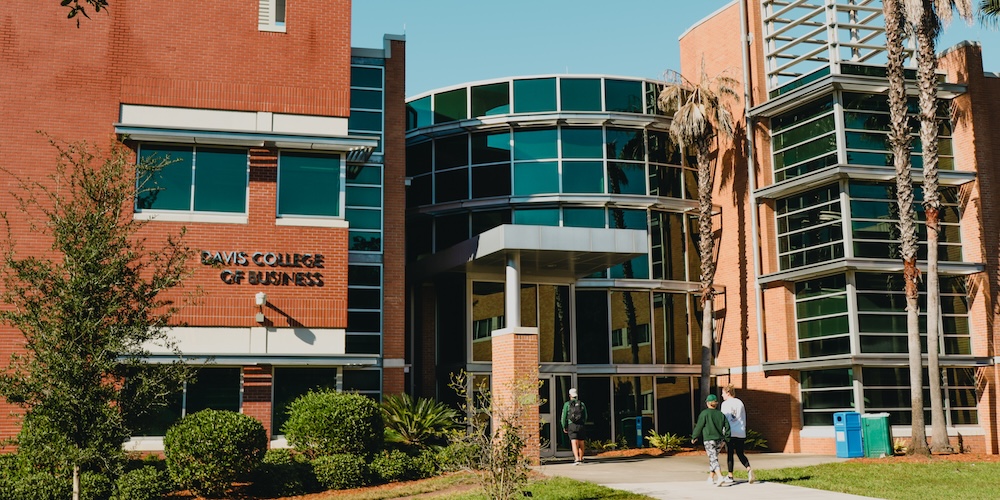One of the unintended consequences of social distancing is how it limits opportunities for everyday physical activity.
You’re no longer walking from a parking spot to your office or classroom, to lunch or to a meeting. You’re not taking regular trips to the beach or shopping at St. Johns Town Center. You’re probably spending a lot more time in front of a computer, iPad or TV screen.
“Regular physical activity is one of the most important things people can do to improve their health,” wrote US Department of Health and Human Services (HHS) Secretary Alex Azar in 2018’s Physical Activity Guidelines for Americans, 2nd edition.
While we continue to practice social distancing, we should also pick up some new habits to ensure that we’re meeting the HHS’ recommended guidelines on regular, physical activity, which for most adults are:
- Move more and sit less throughout the day. Some physical activity is better than none. Adults who sit less and do any amount of moderate-to-vigorous physical activity gain some health benefits.
- For substantial health benefits, adults should do at least 150 minutes (2 hours and 30 minutes) to 300 minutes (5 hours) a week of moderate-intensity, or 75 minutes (1 hour and 15 minutes) to 150 minutes (2 hours and 30 minutes) a week of vigorous-intensity aerobic physical activity, or an equivalent combination of moderate- and vigorous-intensity aerobic activity. Preferably, aerobic activity should be spread throughout the week.
- Additional health benefits are gained by engaging in physical activity beyond the equivalent of 300 minutes (5 hours) of moderate-intensity physical activity a week. Adults should also do muscle-strengthening activities of moderate or greater intensity and that involve all major muscle groups on 2 or more days a week, as these activities provide additional health benefits.
Here are six simple things that anyone can do to begin meeting these guidelines:
Household chores
Simple tasks such as vacuuming, scrubbing the bathtub or shower and doing the laundry contribute to your overall fitness, according to HHS. Get up from your computer regularly and take care of some chore you’ve been avoiding. You’ll get some exercise and accomplish something, too.
Gardening and working in the yard
HHS classifies raking the yard as a moderate-intensity activity. So is mowing the lawn. You can also trim the hedges, repot those flowers or move that palm plant.
Walking
When you do leave the house, park farther away from your destination to give yourself a longer walk. Walk the dog twice as long as normal. The dog will love you for it. Walk around your neighborhood and pay attention to the landscaping. It might give you some gardening ideas. If you live close enough, walk to the grocery store.
Biking
If you’ve got a bike at home, you can easily get some of the best aerobic exercise there is. Consider biking to complete your errands. A short ride at the end of the workday can help you wind down and switch gears to private time. It’s also a great way to start your day and get your creative juices flowing.
Dancing
Turn the music up and dance, no one’s watching. It’s a great aerobic activity that also helps with flexibility and balance. You can dance while you do housework, just for fun or get serious and learn new dance steps and full routines online. Any way you do it, it will improve your mental outlook, too.
Home workouts
There are old standbys from yoga and Tai Chi to high-intensity interval training to body weight exercises. Whichever you pick, you should easily find a workout out there for you that doesn’t require equipment or a large space. Now is the time to find it. If you already work out, learn a new routine or work to achieve a new personal best. Try a whole new discipline targeting something you’ve always wanted to improve: balance, flexibility, strength.
For more ideas or for help in designing your own physical activity plan, visit the HHS Move Your Way website.

